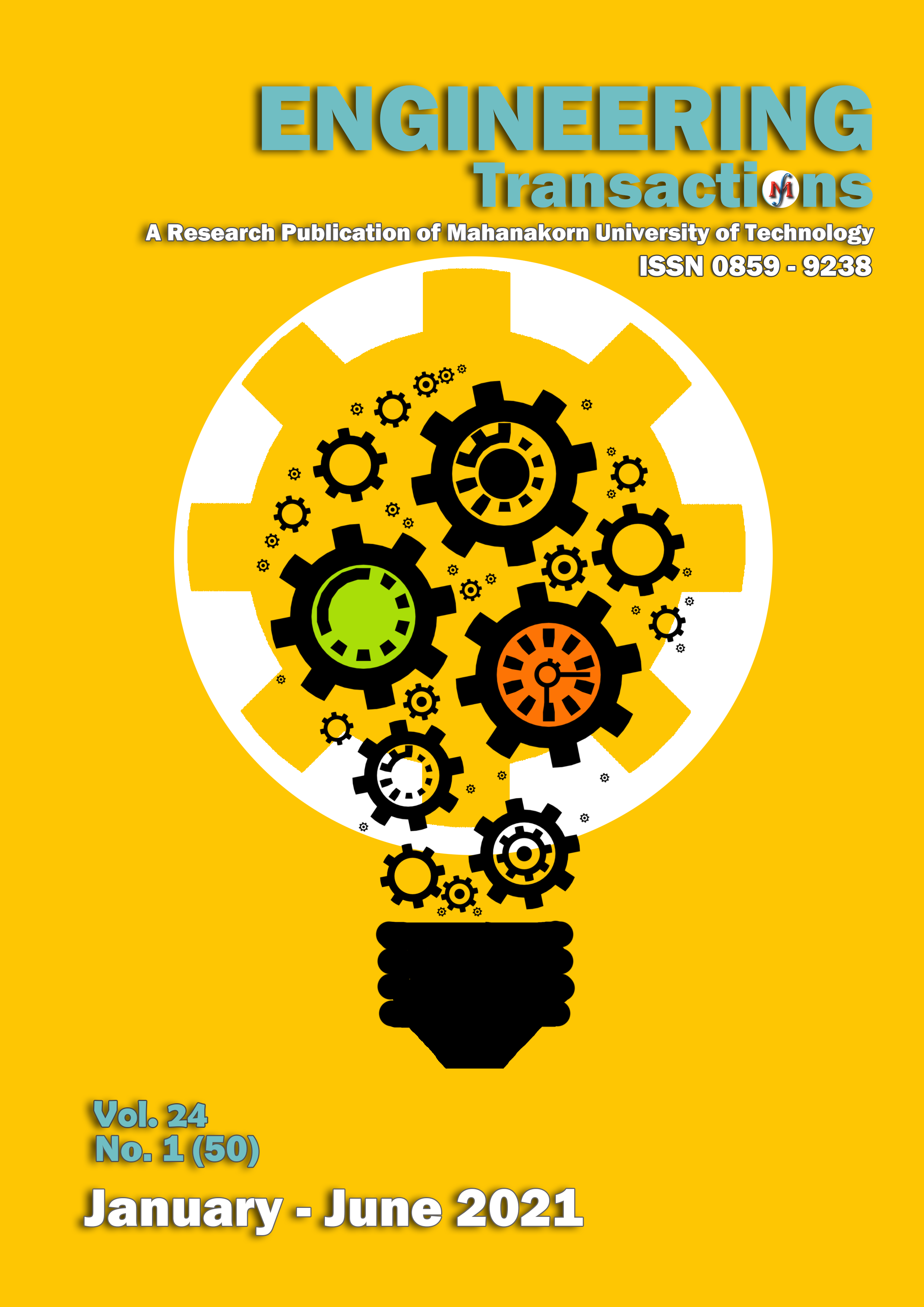Development of Innovation-based Learning through Mini-project in Advanced Digital System Course
Main Article Content
Abstract
This paper presents the development of innovation-based learning using single computer board and mini-project on course of CPE2227 advanced digital system. Innovation-based learning is used to motivate the junior computer engineering students to understand clearly for in-depth of advanced digital system course. This course concerns with the digital system, that is the basic structure of innovation in this recent. In laboratory course of CPE2227 course is used to practice the computer students in the teamwork, problem-based solving, creative thinking skills at computer engineering in Suan Sunandha Rajabhat University. This practical course in laboratory covers the theoretical foundation of advanced digital course about hardware and software design as computer programming and application development. According to Covid-19 pandemic in Thailand, this course is developed for the hybrid course consisting of online and on-site with the environment changes. Learning outcomes of this course supports and encourages the students to understand the basic knowledge for innovation and senior project through the course activities.
Article Details
Copyright @2021 Engineering Transactions: A Research Publication of Mahanakorn University of Technology
Faculty of Engineering and Technology
Mahanakorn University of Technology
References
S. Sitjongsataporn, W. Sukjit, P. Promwong, P. Taninsurat, P. Dechsuwan, “Study of Implementing Outcome-based Learning in Electric Circuit Analysis for Undergraduate Students” , in Proc. IEEE International STEM Education Conference (iSTEM-Ed), Bangkok, Thailand, pp. T3-60 – T3-63, 2018.
ประสูตร เดชสุวรรณ, “การศึกษาที่มุ่งผลลัพธ์โดยใช้การวัดผลลัพธ์แบบ KAPIS สำหรับรายวิชาการวิเคราะห์วงจรไฟฟ้าของคณะวิศวกรรมศาตร์ มหาวิทยาลัยเทคโนโลยีมหานคร”, Engineering Transaction, vol. 21, no. 1(44), Jan-Jun, 2518.
L. Singelmann, E. Alvarez, E. Swartz, R. Striker, M. Pearson, D. Ewert, “Predicting and Understanding Success in an Innovation-Based Learning Course”, in Proc. International Conference on Educational Data Mining (EDM 2020), pp. 662-666, 2020.
เศรษฐกาล โปร่งนุช, อภิรักษ์ ธิตินฤมิต, ญาณาธร เก่งอนันตานนท์, ธนินท์ ปฏิญญาวัฒน์ และ เฉลิมพล อินทร์ประดิษฐ์, “การสร้างเครื่องมือระบบออกแบบร่วมกันสำหรับการฝึกปฏิบัติของวิชาสถาปัตยกรรมคอมพิวเตอร์”, การประชุมวิชาการระดับชาติ มหาวิทยาลัยราชภัฏนครปฐม ครั้งที่ 7, หน้า 1253-1260, 2558.
M. T. Qurohman, M. S. Sungkar, T. Abidin, “Improvement of Students' Ability With Mathematics Learning Innovation Based on Handphone Technology”, in Proc. of the SEMANTIK Conference of Mathematics Education (SEMANTIK), Advances in Social Science, Education and Humanities Research, vol. 467, pp. 60-65, 2019.
E. Panadero. A review of self-regulated learning: Six models and four directions for research. Frontiers in psychology, 8:422, 2017.
L. Singelmann, E. Alvarez, E. Swartz, M. Pearson, R. Striker and D. Ewert, "Innovators, Learners, and Surveyors: Clustering Students in an Innovation-Based Learning Course," 2020 IEEE Frontiers in Education Conference (FIE), pp. 1-9, 2020.
S. Prongnuch and S. Sitjongsataporn, “Exterior Car Parking Assistance Algorithm Based on Reconfigurable System for Future Industry”, Journal of mobile multimedia, vol. 16 issue. 1-2, 2020.
S. Prongnuch, S. Sitjongsataporn, “Differential Drive Analysis of Spherical Magnetic Robot using Multi-single Board Computer”, International Journal of Intelligent Engineering and Systems (IJIES), vol. 14, no.4, pp. 264-275, 2021.
ประสูตร เดชสุวรรณ, “การพัฒนาการเรียนรู้แบบ outcome-based education ในรายวิชาการวิเคราะห์วงจรไฟฟ้าของคณะวิศวกรรมศาสตร์ มหาวิทยาลัยเทคโนโลยีมหานคร”, Engineering Transactions (Group B), Vol. 20, No.2 (43), July-Dec. 2517.
Office of Higher Education Commission, “National Qualifications Framework for Higher Education in Thailand: Implementation Handbook”, November 2006. Available: http://www.mua.go.th/users/tqfhed/news/FilesNews/FilesNews8/NQFHEd.pdf. [Accessed: 28-05-2021].


